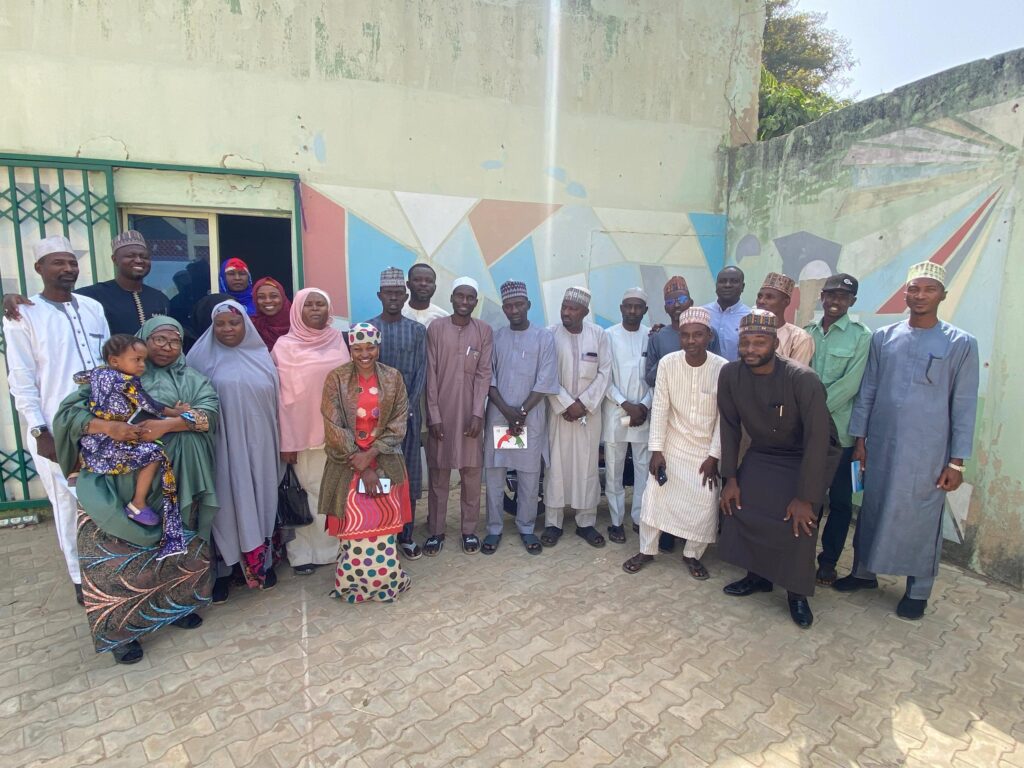The Association of Civil Society in Malaria Control, Immunization and Nutrition (ACOMIN), through its COVID-19 Response Mechanism (C-19 RM) project, has organized a media engagement and dissemination meeting in Kano, bringing together journalists and key stakeholders in the health sector.
Speaking at the event, Dr. Nura Haladu, ACOMIN Kano State Chair, said the quarterly dialogue was designed to strengthen collaboration between the media, civil society organizations, and health actors involved in the C-19 project.
He explained that the ongoing intervention focuses on ensuring accountability in the management of Global Fund–supported Malaria, HIV, and Tuberculosis (ATM) commodities across selected health facilities in the state.
“We are working with 15 community-based organizations implementing the ATM project in Global Fund–supported facilities, ensuring community members receive the right services with dignity and respect,”
He added that ACOMIN monitors stock levels of essential testing kits and medicines and promptly reports shortages to national logistics units to prevent service disruptions.
Also speaking, the ACOMIN Kano State Programme Officer, Huzaifah Ibrahim Ahmed, said the meeting aimed to showcase success stories recorded under the C-19 RM project.
According to him, community-led efforts have resulted in significant improvements, including the renovation of health facilities, reconnection of electricity and water supply, and strengthened partnerships between community structures and facility managers.
He cited Wapa Health Facility as one of the centers that benefited from reconnection interventions achieved through community advocacy and support from philanthropists.
“Our goal is to build on these successes and encourage other health facilities to replicate these community-driven initiatives,”
“We want communities to develop a strong sense of ownership that will help improve healthcare service delivery.”
In her remarks, Halima Bala Adamu, Advocacy, Communication, and Social Mobilization ACSM Officer of the Kano State Malaria Elimination Programme, said the state is intensifying efforts to reduce malaria burden, especially in the face of emerging challenges.
She revealed that recent research by scholars, including Professor Yaro of Bayero University Kano, shows increasing insecticide resistance in mosquitoes, affecting the effectiveness of Insecticide-Treated Nets (ITNs).
She added that new findings indicate that malaria-causing vectors now bite both at night and during the day, contributing to persistent transmission despite high ITN ownership in many communities.
To address this, the state is adopting Larval Source Management (LSM) to identify mosquito species and eliminate breeding sites. The pilot phase will take place in Kano Municipal, Shanono, Kura, and Dala LGAs.
“Within the next few months, we expect to identify the key mosquito species causing infections, conduct targeted spraying, and carry out follow-up surveys to determine the impact,”
The meeting concluded with commitments from stakeholders to strengthen collaboration and sustain gains recorded through the C-19 RM intervention across Kano State.





